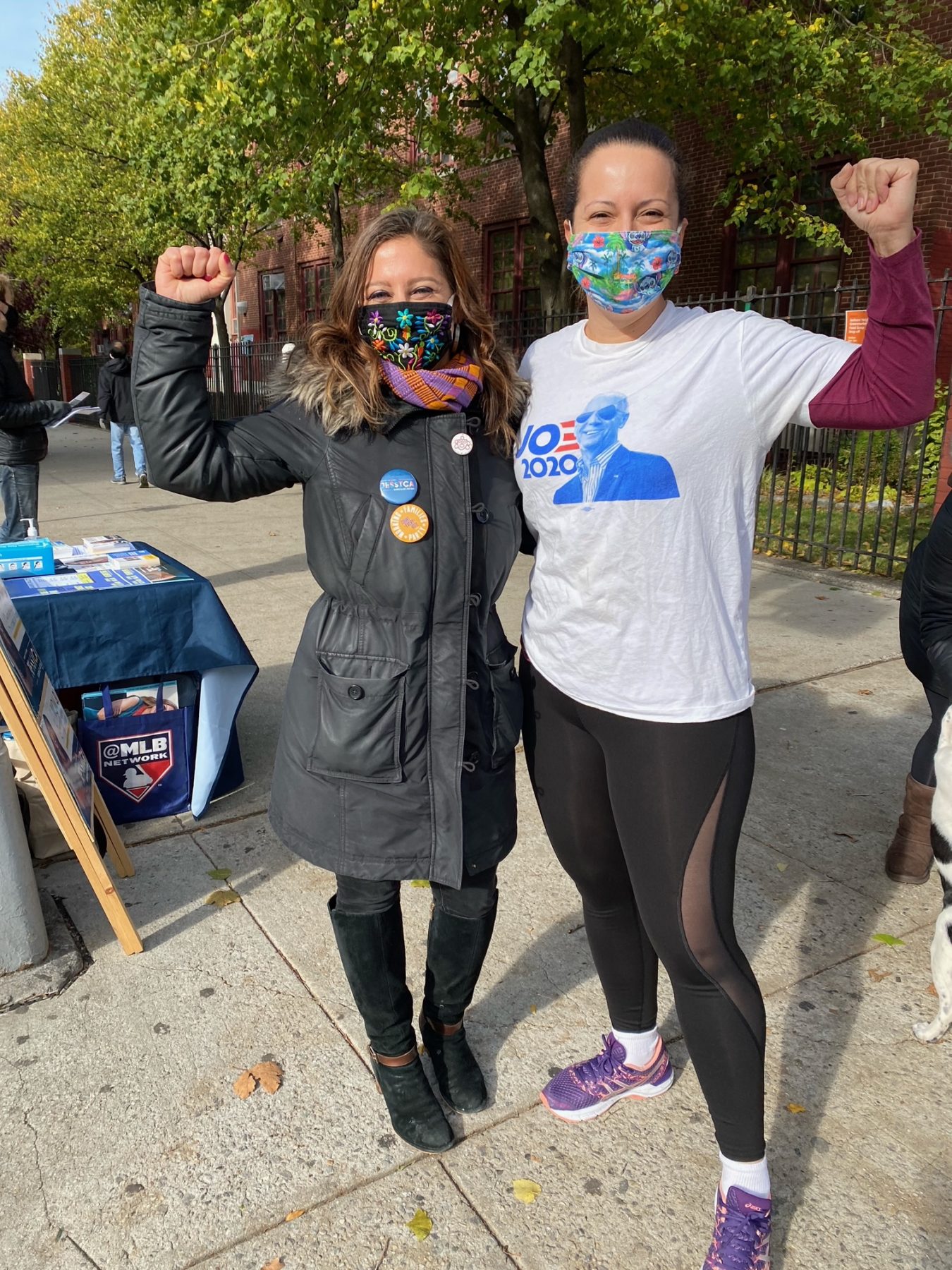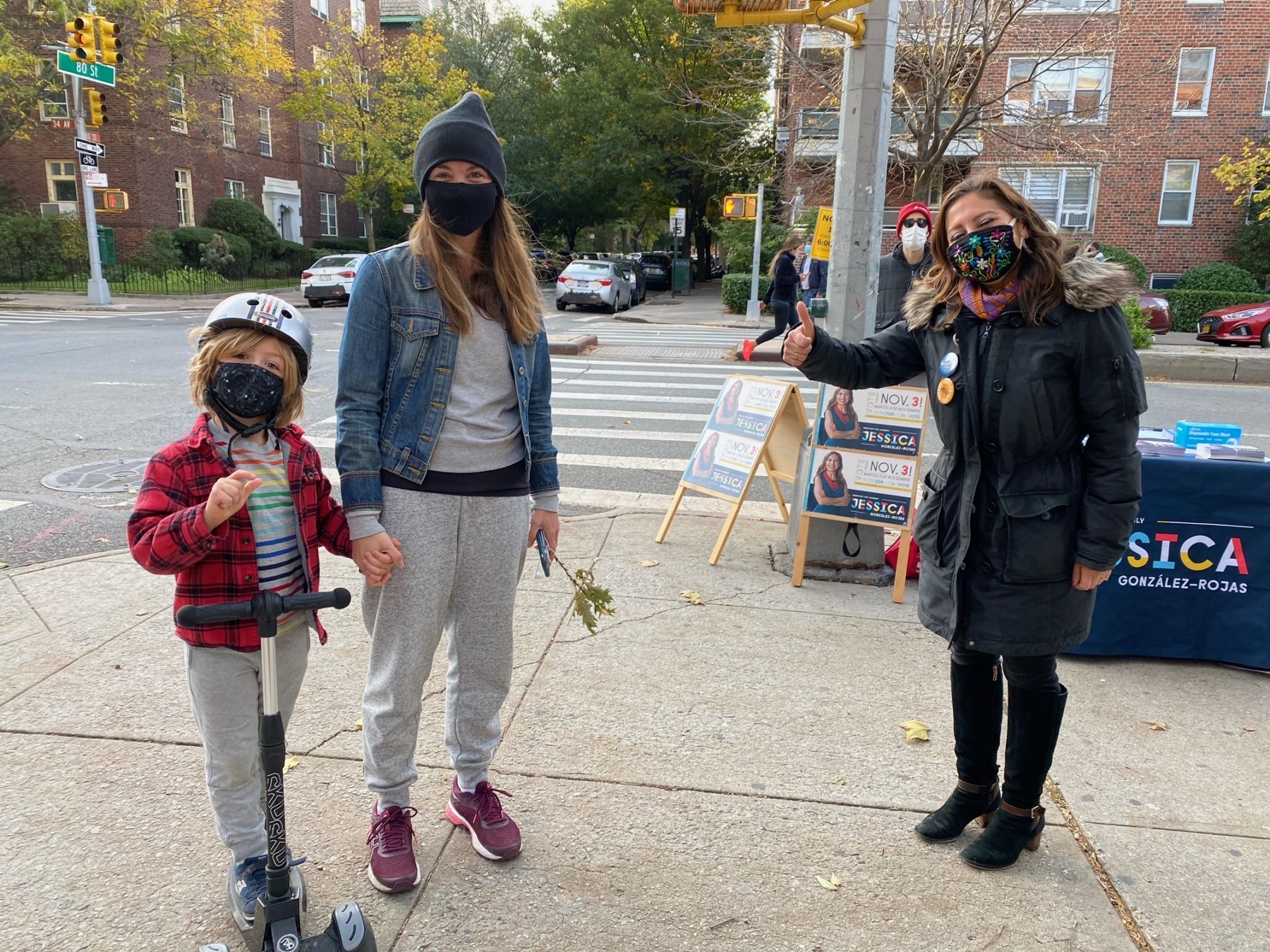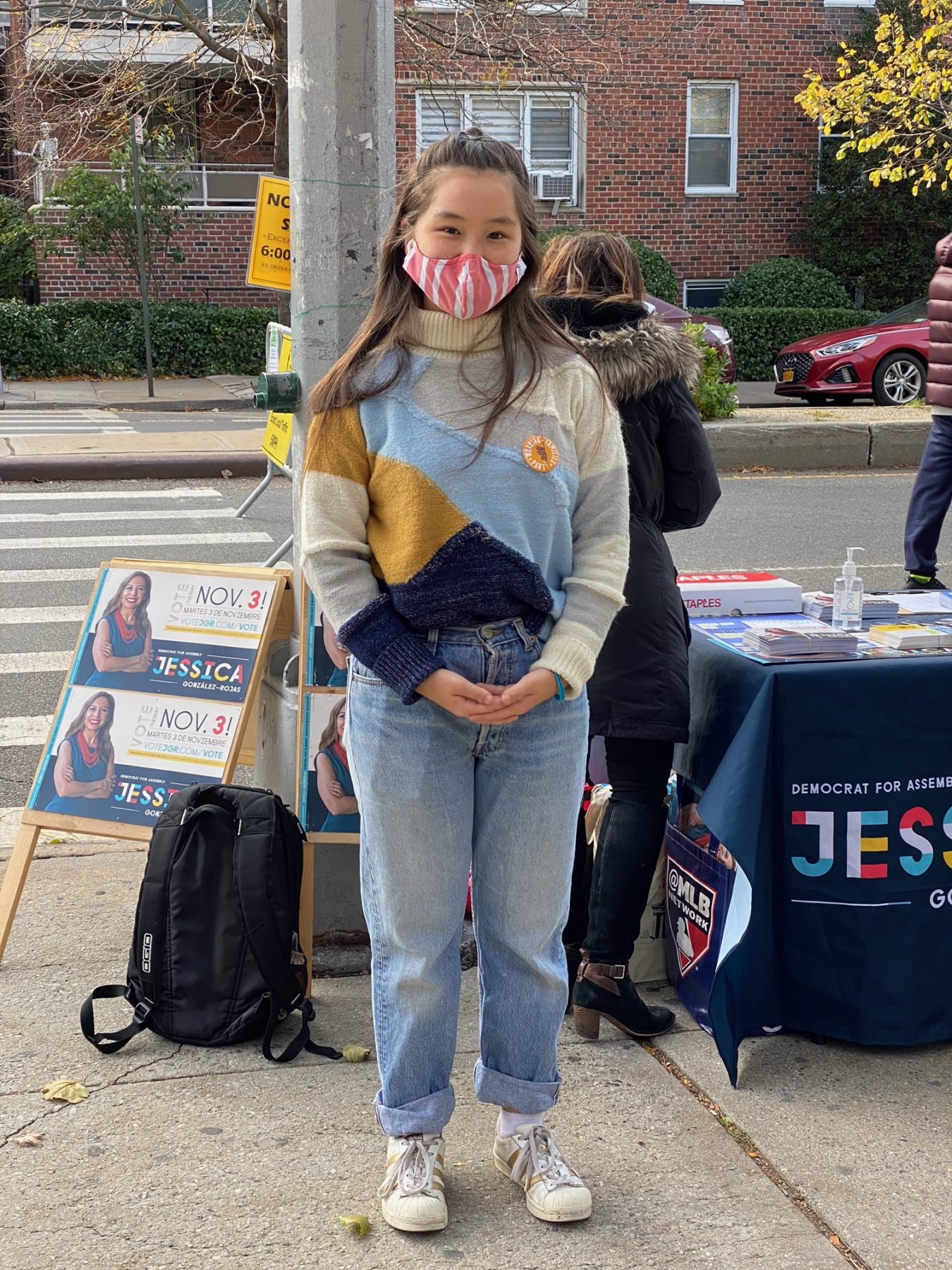Jessica González-Rojas knows exactly how long it’s been since a woman was elected in her state assembly district.
“I can tell you, it’s been 44 years,” she says, “because Ivan Lafayette was elected in 1976, the year I was born.”

González-Rojas is a first-time challenger in New York State Assembly’s 34th district in Queens under both the Democratic and Working Families Party ticket.
After her victory in the highly contentious Democratic primary elections in July when she beat six-term incumbent, Michael DenDekker and three other candidates, her possible victory in today’s election against Republican opponent, William Marquez is widely expected in this heavily Democratic district.
If elected, González-Rojas will be putting an end to a 44-year dominance held by two white men, Ivan Lafayette for 32 years, and Michael DenDekker for 12 years, in a district that is now 60% Latinx and 30% Asian American and Pacific Islanders.
Born in Queens to an immigrant father from Paraguay and a Puerto Rican mother, González-Rojas has been a resident in the community since 1999. Prior to jumping into local politics, she worked as an executive director of the National Latina Institute for Reproductive Health, and as an adjunct professor for Latino and Latin American Studies at the City University of New York’s City College.
González-Rojas’s candidacy follows a slate of powerful Latinx women in Queens who took office in the 2018 midterm elections, including Congresswoman Alexandria Ocasio-Cortez from New York’s 14th district; Assemblywoman Catalina Cruz, a formerly undocumented immigrant from Colombia who now represents the 39th district, as well as New York State Senator Jessica Ramos.
Ocasio-Cortez officially endorsed González-Rojas on Oct. 23.
“I feel good about my candidacy,” said González-Rojas at 8:00 a.m. while putting up flyers in the crisp air at her greeting station near the polling place at IS 145 Joseph Pulitzer School, as dozens of passersby honked and waved, “good luck Jessica!”
“I’m never taking anything for granted, and I’m not just here for myself,” said González-Rojas. “I’m also out here for a whole cadre of candidates who are for the Working Families Party.”
New rules by Governor Andrew Cuomo in this electoral cycle require all political parties to tally at least 130,000 votes or 2 percent of the final count in order to retain an automatic ballot line – a maneuver described by many progressives as an assault against the Working Families Party who backed Cynthia Nixon in 2018 against Cuomo’s re-election.
“There’s something called ‘fusion voting’ in New York,” said González-Rojas, who has been advocating for voters to choose their candidate under the Working Family’s Party line, through phone banks, text banks, outside poll sites, relational organizing, social media, and rallies, most recently held on Oct. 31 at the Jackson Heights Public Library.
Not all voters are familiar with how fusion voting works, however, especially under this year’s high-stakes election.

In March, 2019, the New York State Democratic Party passed a resolution to end New York’s unusual practice of “fusion voting,” which allows candidates to run on multiple ballot lines at once, enabling voters to demonstrate support for an ideological movement within a party without hurting the political power of either one of the two dominant parties. However, any attempt to actually overturn fusion voting would have to go through Democrat controlled-legislature, where there is little appetite to do so. Hence, New York state’s cross-endorsing remains.
“I wasn’t sure how that all works, so I went with the Democratic party,” said Claire Lansing, 25, former waitress, currently unemployed.
“I only realized about the Working Family’s Party as I walked out,” added MacKenzie Lansing, 29, who is an actress.
Dean Rodgers, 37, and a teacher at CUNY stopped by González-Rojas’s table, exclaiming “I’ve never seen a candidate at the election site like this. Just stopping by so that I can say I met her when she’s the President!” But when asked under which party line he voted for the President and for González-Rojas, Rodgers said, “I didn’t vote under the Working Families Party…I was so scared about my vote not counting and wanted to be safe.”
Others are more familiar with the party. Heidi Rosbe, 40, who works for the International Rescue Committee, a global non-profit organization founded by Albert Einstein in 1933, walked by with her son to show support for the Working Families Party and González-Rojas, after already having voted on Friday.
“I’ve worked in Iraq and Syria, and have seen and heard so many stories of how things can go very wrong when you think everything’s fine,” said Rosbe, explaining the importance of voting and for the right values. “In 2009, nobody would have predicted what were to come in Syria. I’m very anxious today.”

Sophie Cohen, a 17-year-old high school senior at Forest Hills High School, cannot yet vote, but has been working every day since March for the Working Families Party. Cohen, who was born and adopted in Kazakhstan, grew up in Connecticut and moved to Queens a year ago. “It’s important to amplify different parties so that every person has a voice,” she said.
Cohen said she thinks the Working Families Party most likely can stay on the ballot based on the conversations she has had with her colleagues and voters across New York state.
“I want to be a local public servant when I grow up,” she said. “It’s important every voice is heard.”
About the author(s)
Anna Mutoh is a fellow at the Columbia Journalism School's Stabile Center for Investigative Journalism and has a 20-year career in investment banking with published work in The New York Times, The Wall Street Journal, and Japan’s NewsPicks.



